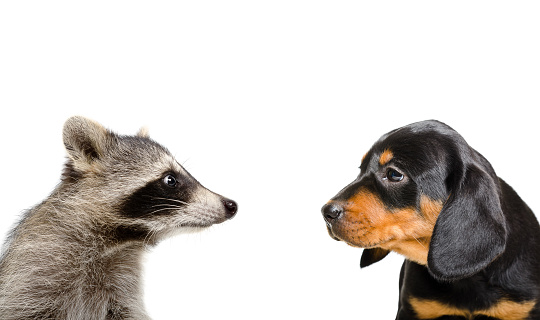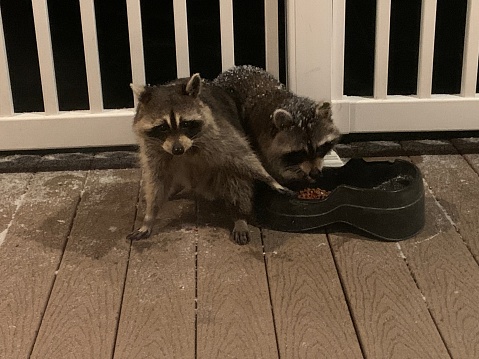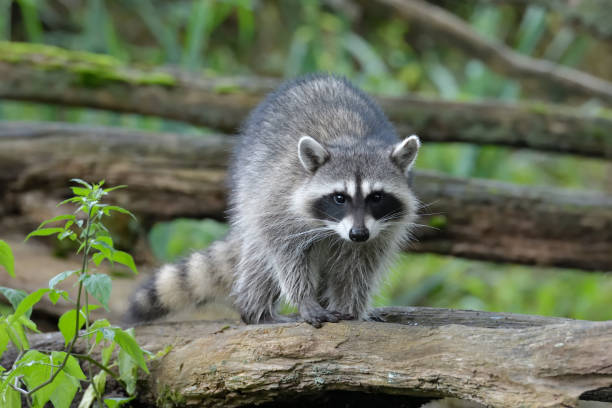
Raccoons are a kind of wild mammal. Their actions are geared towards keeping them alive in the wild. They’re native to North and Central America, and they’re adaptable enough to survive in nearly any habitat there. They thrive in a variety of habitats, from the American Southwest’s deserts to tropical woods and northern hardwood forests.
Where Do Raccoons Live?
Raccoons in the wild reside in tree hollows or underground tunnels and hunt for whatever small animals they may catch during the night. Raccoons in the wild have evolved a diverse diet and will eat almost everything they can capture or locate. And their options are limited in terms of what they can consume. They’ll also live almost anyplace. Raccoons, on the other hand, have evolved to coexist with humans. Raccoons, in general, will not leave your property on their own since they have found safety, food, and shelter close to your home. Raccoons commonly consume rubbish, hide in attics or beneath decks, and prey on pets. Raccoons are rare animal species that appear to be unconcerned with their surroundings. They are equally at ease in hot, humid southern summers as they are in frigid northern winters.
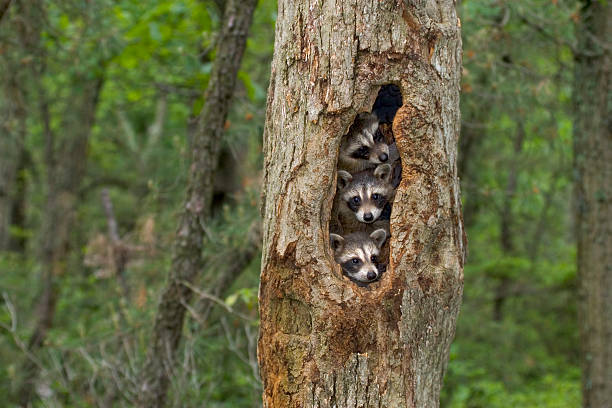
Raccoon Predators
Coyotes are more harmful than humans. Coyotes, cougars, and bobcats are among their natural predators. Small raccoons are prey for eagles and huge owls. While out at night looking for food, raccoons are chiefly concerned about evading these predators. And they’ve worked out that sticking near people is the best way to keep them reasonably safe while hunting for their next meal. Humans also want to avoid large predators, and owls and eagles don’t normally cluster in places where people do. Raccoons perceive this to be a positive thing. Raccoons, like many other animals, like to live in a secure environment. There are fewer predators when there are a lot of humans therefore, raccoons are safer. Raccoons are pests, but they’re not stupid, and if they believe they’re safe, they’ll stay.
Need for Food
If all the food a raccoon could possibly need is within foraging reach of your land, it is unlikely that it will leave. Raccoon visits are no exception to the rule that food is a major contributor to unwelcome pests. Raccoons are voracious feeders who will eat just about everything. You’ve already taken a huge step toward convincing raccoons that your home isn’t the nicest hangout in town if you don’t keep food out in your yard. However, just because you aren’t serving them a meal doesn’t mean they won’t locate leftover pieces on their own. Raccoons are attracted to food that is left out in the open.
Everything is on the table, from dog food bowls to fruit trees, soiled recyclables, and even lawn grubs. Raccoons will remain around if there is anything that even faintly resembles food. They’re not likely to depart until all of the food has been consumed.
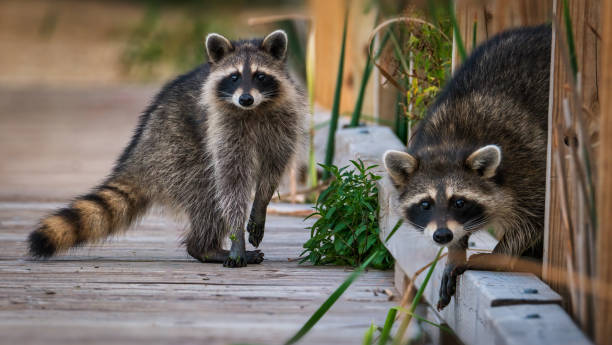
Summary
They won’t, at least not for the time being. The young mature and set out on their own after 8-9 months, and the female has a fresh litter of raccoon pups shortly after. If you’re just dealing with adult raccoons, try scaring them away using bright lights and loud noises (such as a loud battery-operated radio in the attic or a loud fireplace). Also, try putting a bowl of cider vinegar at the base of the chimney — raccoons despise the smell and will flee. Make your home as undesirable to raccoons as possible once they’ve all left.

